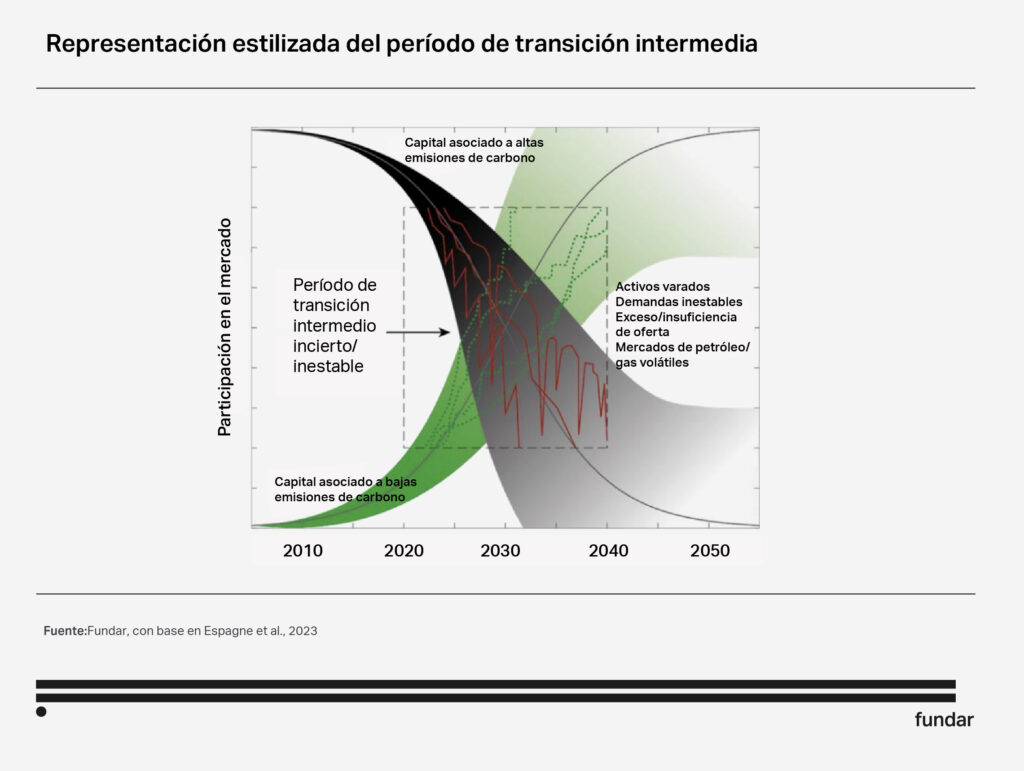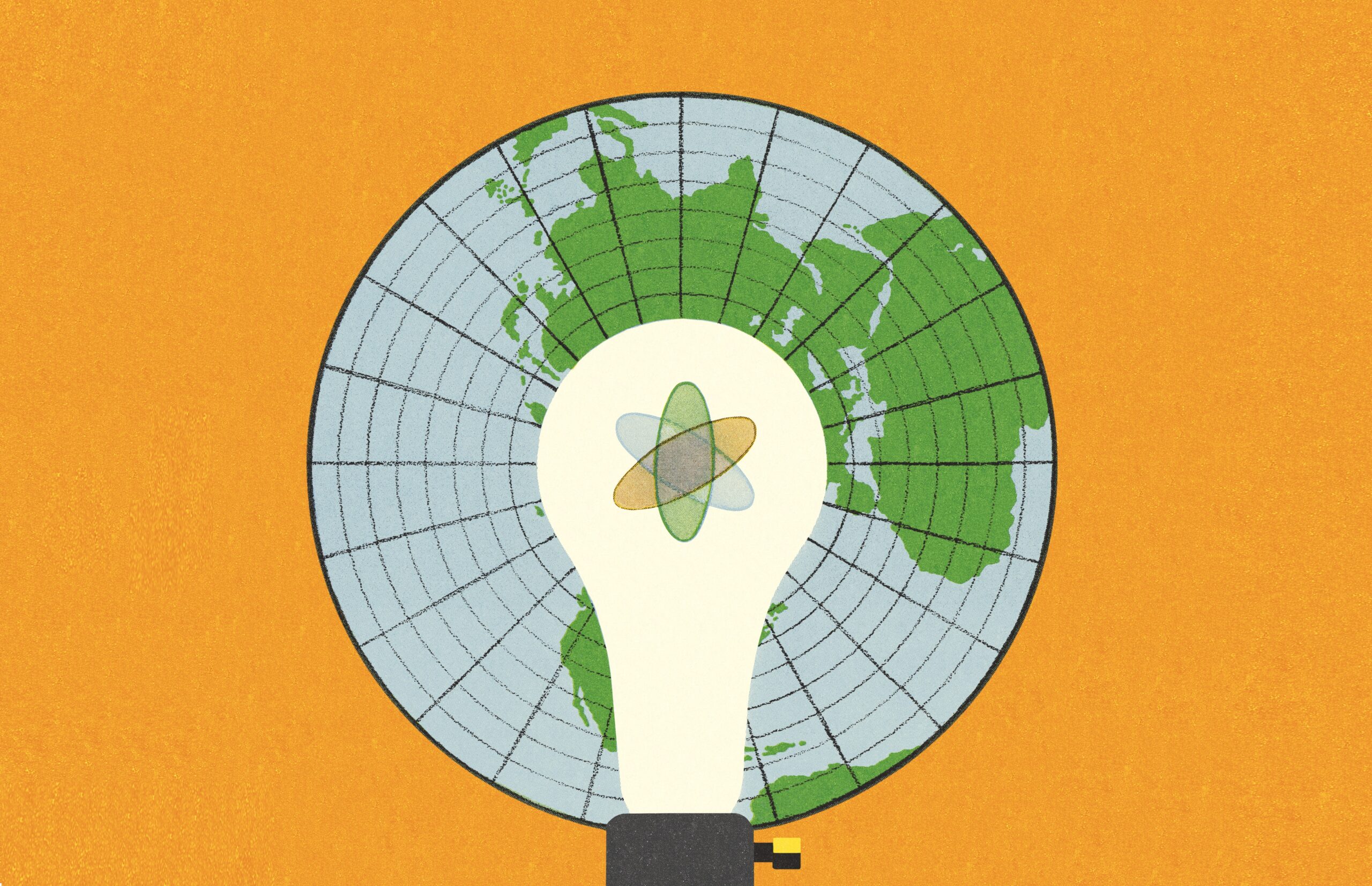Global warming is accelerating, bringing with it more extreme and unpredictable weather. Heat waves, droughts, floods and rising sea levels are already a fact of life, becoming more intense and more frequent. In the effort to mitigate climate change and adapt to its consequences, policies, technologies, production dynamics and social preferences are being transformed, redefining the rules and parameters of development and international insertion of countries. Argentina has been navigating this transition without a clear course and runs the risk of being left behind, losing opportunities and exposing itself to excessive risks, especially with the arrival of a government that is reactive to the climate agenda.
The discussion on how to address climate change in Argentina is, in essence, a discussion on development. In order to build on a clear global diagnosis, systematise the risks facing the country and consider possible ways forward, we present this document as a starting point for promoting a comprehensive climate change and development agenda.
Climate change as a global megatrend
Given the pervasiveness of fossil fuels in the functioning of modern societies, the transition to a low-carbon economy requires profound change. Some sectors must expand rapidly to increase their production and market share, while others must radically transform or shrink to the point of disappearing.
These processes occur simultaneously and sometimes contradictorily: the rapid emergence of the green economy coexists with the fact that the vast majority of activities still depend on fossil resources. The overlapping of these two forces generates a period of intermediate transition in which the fossil fuel-based energy and production system coexists with an emerging low-carbon one.

This interim period engenders risks and uncertainties because coordination among actors is imperfect, the speed of the transition and the technologies that will be imposed are uncertain, and the magnitude of the impacts of climate events are sometimes unpredictable.
In this context, Argentina should pay attention to certain key trends:
1.
International scrutiny of countries’ climate policy is set to increase. As 2030 approaches, emissions continue to exceed the Paris Agreement target and climate change impacts intensify, an increasingly demanding climate governance scenario is taking shape. This implies a greater focus on countries’ emissions reduction efforts, resulting in greater conditionalities and requirements for access to finance and export markets.
2.
Geopolitical competition for the domination of green technologies will intensify. Countries that manage to consolidate their position as suppliers of sustainable goods and services will be able to capitalise on benefits in terms of export and employment generation, technological dominance and geopolitical positioning. China’s leadership in the manufacture of green technologies has in recent years sparked a trade counter-offensive by the United States and EU countries, which are pushing green industrialisation processes to regain manufacturing capacity in these value chains. Meanwhile, low- and middle-income countries have been left behind in the process, and their insertion into the new green markets is a key challenge for their development.
The risks Argentina faces
- physical risks, linked to the direct impacts of climate events;
- Transition risks, related to changes in policy, technology, market dynamics and social preferences in the transition to sustainable economies.
Argentina faces a considerable range of both types of risks. Many of them are linked to its relative level of development and its levels of social vulnerability, due to high poverty rates and disorderly urbanisation processes. Others are linked to their productive specialisation profile: the low diversification of their exports, highly concentrated in primary products and natural resource-intensive manufactures with low technological content.
Physical hazards
The most significant climate impacts include increased average temperatures, more frequent heat waves, increased precipitation extremes and periods of drought, sea level rise and glacial retreat. These changes in turn result in more frequent flooding in some areas, reduced water availability in others, and increased extent, frequency and spread of fires.
Climate events have a direct impact on agricultural yields. This has repercussions on food prices, trade balance results and tax revenues. The 2022/23 drought resulted in a 2.2% drop in GDP, the loss of USD 3554 million in tax revenues and USD 8 billion in exports.
Without adaptation measures, climate change could reduce yields in sunflower production by up to 10%, in maize and wheat by 30%, and in soybeans by 50% by 2050. In addition, the impact of deteriorating agricultural performance on reserve accumulation could affect the credit ratings of financial agencies, resulting in higher interest rates and greater difficulties in accessing finance.
In a scenario where the frequency of flooding doubles, losses of assets essential to operations and productivity could increase by 125% and the impact on transport systems and services could cost Argentinean companies USD 4 billion per year.
Between 1900 and 2021 floods affected a total of 15 million people. Poor neighbourhoods are particularly exposed: 48% of them are located in flood-prone areas. Since 1960, heat waves have increased, affecting mainly the elderly, children and people with chronic diseases, precarious households without access to refrigeration, and workers linked to construction and agriculture, activities mostly carried out outdoors. The new climatic conditions favour the reproduction of disease vectors, such as dengue fever, whose transmission potential has increased by 54 per cent since 1951 in Latin America.
Transition risks
These result from the various transformations needed to move towards sustainable, low-carbon economies. Public policy changes reshape existing production structures and economic conditions. Technological evolution displaces traditional industries, transforming value chains and labour markets. Market dynamics are under stress due to the establishment of stricter trade regulations and sustainability standards. Added to this is the growing prominence of consumer and community preferences that demand more responsible and sustainable practices. The confluence of these dynamics generates significant disruptions, uncertainty and tensions for all actors involved, underlining the need for a comprehensive and planned management of the transition.
In Argentina, the hydrocarbon sector represents 5.6% of GDP and plays an important role in exports: in 2023 it reached 9.4% and is expected to grow with the development of Vaca Muerta. However, to the extent that the decarbonisation process is expected to reduce the consumption of fossil fuels in the world, the expectation on the sector is crossed by the risk that a shrinking of the market will significantly limit export potentials.
While global demand for critical foods and minerals creates opportunities, these are combined with increased scrutiny of their environmental and social impacts. This translates into a proliferation of standards, such as the EU’s deforestation-free regulation, which can be a challenge to meet and thus make access to the most demanding markets more difficult.
The automotive sector, the main industrial export complex, faces the risk of the transition to electromobility, a disruptive change in the sector’s inputs, processes and products. Other industries such as chemicals and diffused inputs, while not needing to produce something different, do need to transform their processes to decarbonise, which can be particularly costly in those that cannot electrify.
In 2021, 80% of exported goods were primary products and natural resource-based manufactures, with medium- and high-tech goods accounting for only 17%. In general, green products have a higher average complexity than Argentina’s export basket and are far from current productive capacities.
Four guidelines for a development strategy in the era of global warming
1. Build climate action on Argentina's international positions and commitments
The experiences of other countries in the Global South show that foreign policy is more relevant than ever to harness limited but existing agency capacity. Historically, Argentina has been an active participant in climate negotiations, adopting adaptation and mitigation commitments, and showing leadership on agendas such as adaptation and finance.
Sustaining this track record is a necessary condition for taking advantage of private and multilateral financing opportunities, and the limited margins for action to strengthen international insertion.
2. To prioritise adaptation as a fundamental pillar of Argentina's response to climate change
Given Argentina’s high economic and social vulnerability, it is necessary to prioritise adaptation to climate change, allocate specific lines of funding to it and make it a cross-cutting issue in all other policies, particularly those related to urban planning, land use and agricultural development.
In this process, provincial and municipal governments play a key role, as they are the ones who best know the specific contexts in which policies are implemented and have direct responsibility for managing many of these challenges.
3. Accelerating the decarbonisation process and aligning it with the development trajectory
Argentina formally complied with the requirements of international climate governance and made progress in concrete measures such as the installation of renewable energies, but it is not yet implementing a comprehensive and consistent mitigation strategy in a sustained manner. This could make it difficult to achieve the emissions reductions committed to, especially in a context of economic growth.
It is imperative that the country
- Has a clear mitigation strategy that defines the contribution of each sector to meeting the emissions target.
- Establish guidelines on critical issues, such as the exploitation of hydrocarbon resources.
- Accelerate the decarbonisation of the local energy matrix.
4. Seizing the opportunities opened up by the green transition to boost economic development
Argentina has opportunities to expand and diversify its production and exports based on the changes in markets generated by the transition to sustainability. Exporting LNG, supplying critical minerals, and entering higher value-added segments by leveraging comparative advantages or existing industrial capacities.
Some of these opportunities can be made operational through market action, but others require state intervention to guarantee favourable environmental conditions, including direct investment in certain strategic sectors.
The link between climate change and development is becoming ever closer. There is no development path that does not incorporate as central dimensions the global dynamics of transition, adaptation to a more adverse climate, decarbonisation of the economy and taking advantage of the opportunities opened up by the green wave of technology.

